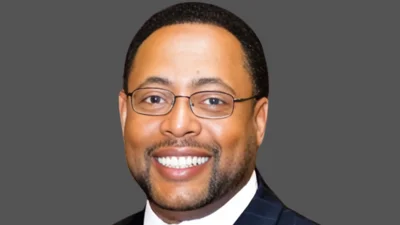The Supreme Court ruled Friday that ballot drop boxes will not be permitted in the April primary. | Adobe Stock
The Supreme Court ruled Friday that ballot drop boxes will not be permitted in the April primary. | Adobe Stock
Drop boxes for absentee ballots will not be permitted in the April 5 statewide primary elections under a Friday 4-3 ruling by the Wisconsin Supreme Court that ended a suspension of a lower court's ruling banning the boxes.
The Supreme Court's decision stems from Waukesha Circuit Court Judge Michael Bohren's ruling in mid-January that stated state election law requires that mail ballots must be delivered in-person or sent through the mail. Bohren ruled nothing in the laws allow drop boxes.
The original complaint was filed in Waukesha County back in June by two suburban Milwaukee voters, with the support of the Wisconsin Institute for Law & Liberty (WILL), against the Wisconsin Elections Commission (WEC). The complaint centered around a memo WEC sent in March 2020 to municipal clerks that allowed third parties to collect mail ballots and place them in drop boxes. The practice is known as ballot harvesting, or trafficking, and some states have recently banned it over security concerns.
Luke Berg, deputy counsel for WILL, said the Supreme Court ruling lifting the suspension of Bohren's ruling bodes well for the final ruling. He expects oral arguments on the case to begin in early summer.
“We are pleased the court declined to allow WEC’s unlawful memos to remain in place for yet another election,” Berg told The Sconi. “It’s a preliminary decision on a stay motion, but still a favorable indication that the court will affirm the Circuit Court’s decision on the merits before the fall elections.
“The legislative intent behind the law is very clear,” Berg added. “Voting by absentee ballot is a privilege outside traditional safeguards. That privilege has to be carefully regulated to prevent fraud or abuse.”
In late January, the Supreme Court agreed to take the case on appeal, leaving in place a suspension of Bohren’s ruling, which allowed drop boxes for the Feb. 15 primary for local offices around the state. WILL filed a response to a motion to extend the stay, and the court reinstated Bohren's ban.
Madison Mayor Satya Rhodes Conway issued a statement on the ruling Feb. 12, calling it "deeply disappointing" and said the "the court has not heard the facts of the case yet and gives absolutely no justification for this ruling." She was also critical of WILL.
"This attack on voting was launched by the Wisconsin Institute for Law and Liberty, a right-wing law firm that is unhappy that the state’s five largest cities worked hard during the pandemic to expand options for voters," she said in the statement. "These five cities represent 74% of all African-American voters, and 47% of all voters of color in the state. We must call this lawsuit what it is: racist voter suppression.
"As Justice Bradley wisely stated in her dissent, the Court’s majority has upended routine and reasonable measures and created more confusion, harm, and uncertainty to both voters and election administrators," Rhodes Conway said.
Local election officials relied heavily on drop boxes during the 2020 General Elections as a voter safety measure during the pandemic. They were funded in part in some heavily Democratic areas by a nonprofit, the Center for Tech and Civic Life (CTCL), in what some allege was a get out the vote campaign for the Democratic Party. Funded by Facebook founder Mark Zuckerberg, CTCL is staffed by former Democratic operatives.






 Alerts Sign-up
Alerts Sign-up